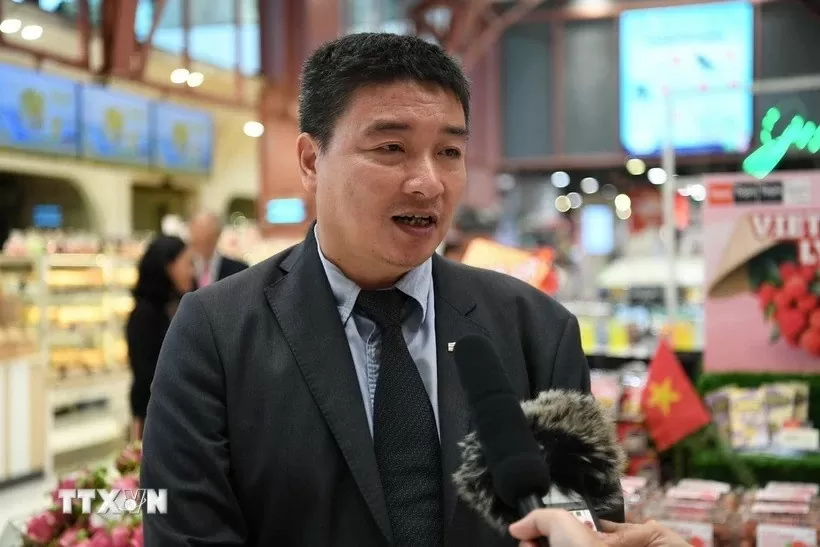
Thailand remains Vietnam’s biggest trading partner in ASEAN: Trade Office
Latest
 |
| Thailand remains Vietnam’s biggest trading partner in ASEAN: Trade Office |
Talking to Vietnamese correspondents in Bangkok, Trade Counsellor Phuc said that this year, the office has focused on implementing four key activities of market research, trade promotion, business support, and communication.
Specifically, it helped more than 30 Vietnamese businesses participate in the THAIFEX – Anuga Asia 2024 Food and Beverage Tradeshow in June; and coordinated with Central Retail Thailand and Vietnam to organise a Vietnamese goods week in Udon Thani province, northeast Thailand, in November; and shook hands with the Federation of Thai Industries (FTI) and the Vietnam Association for Logistics Manpower Development (VALOMA) to hold a forum on promoting cooperation in the development of high-level human resources in logistics and supply chain management between the two countries in October.
In addition, the Trade Office has closely coordinated with domestic units of the Ministry of Industry and Trade and the Ministry of Agriculture and Rural Development, to research and update information on Thai government policies, particularly in areas such as rice and agricultural trade; and shared information and experiences on policy development in fields such as industrial park and export processing zone development, the textile industry, and the tobacco industry.
Thanks to these efforts, bilateral trade exchanges have been vibrant, he affirmed, citing statistics from the General Department of Customs as saying that in the first 10 months of 2024, the total import-export turnover reached 16.6 billion USD, a 5.1% increase compared to the same period in 2023. Thailand remains Vietnam's largest trading partner in ASEAN, accounting for 24% of Vietnam’s total trade with ASEAN countries.
In addition, the two countries are also key partners in ensuring food security in the region. In this context, Vietnam is considered an important bridge for Thai agricultural products to be exported to its primary market, China, with up to 80% of Thai agricultural exports to China being transported via Vietnam.
In the coming period, Phuc stated that the office will focus on establishing a mechanism for information exchange between the two countries regarding each other's policies and trade defence measures. It will also work to enhance exchanges at various levels to review and promptly solve any obstacles, as well as provide consultation and support for businesses to adapt to new business conditions.
Additionally, it will promote trade promotion activities and export market development by connecting supply chains and strengthening local economic cooperation, especially between northeast Thailand, where a large number of Vietnamese people reside, with central Vietnamese localities.
The office will work to facilitate market access for local products through programmes like Thailand's "One Tambon, One Product" (OTOP) and Vietnam's "One Commune, One Product" (OCOP), aiming to increase the presence of Vietnamese goods in Thai supermarkets.
Furthermore, seeking opportunities to connect businesses from both countries in future-oriented sectors such as green economy, digital economy, circular economy, and renewable energy will also be a priority for promotion in the coming year, he added.





















